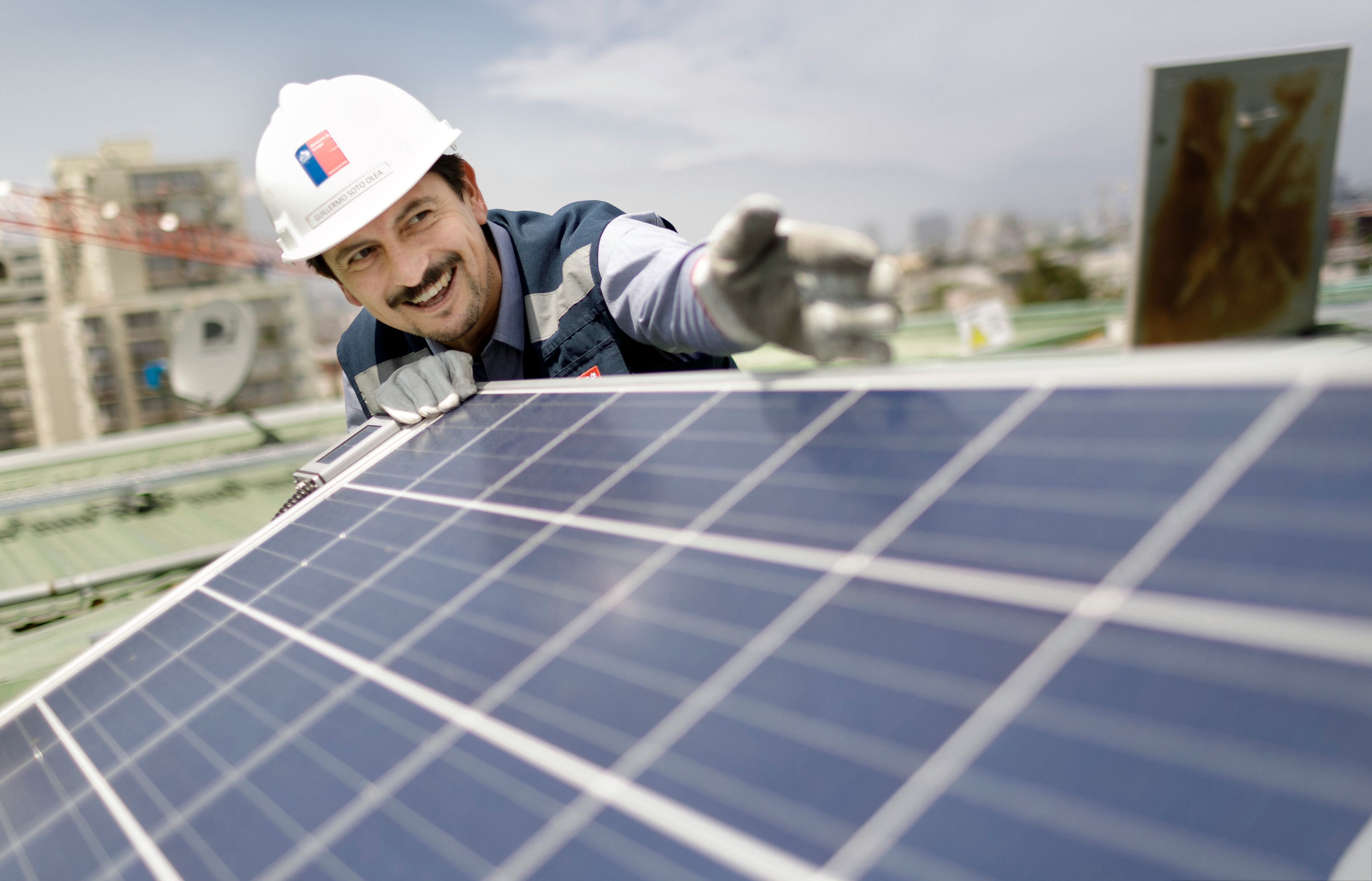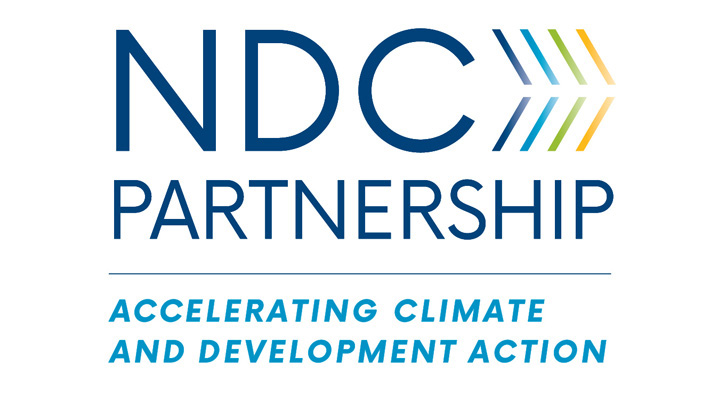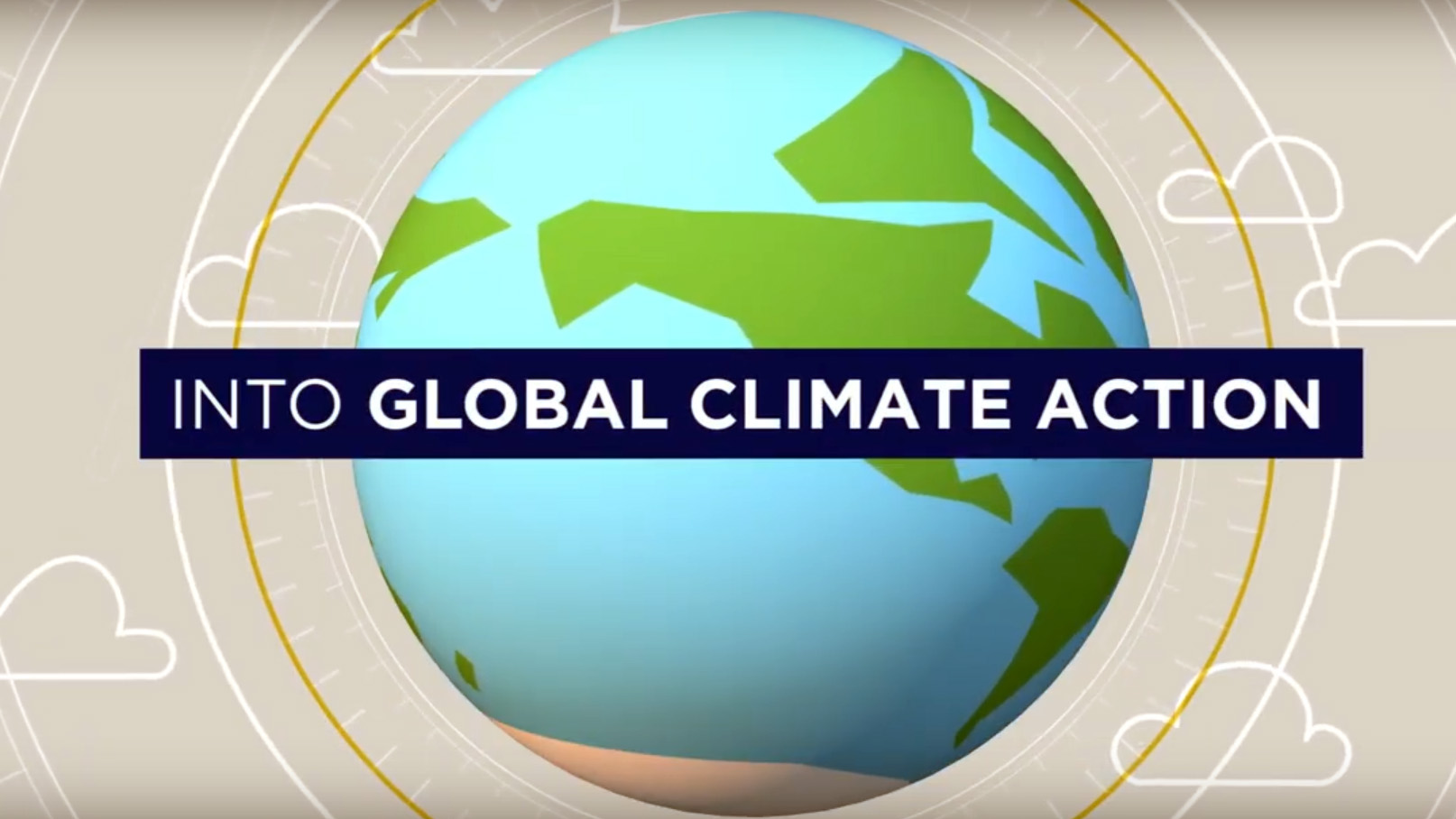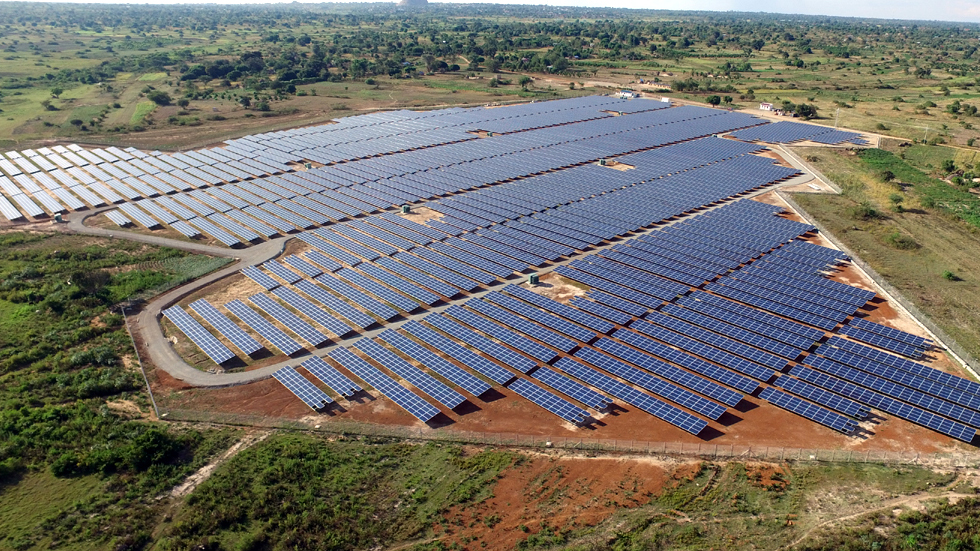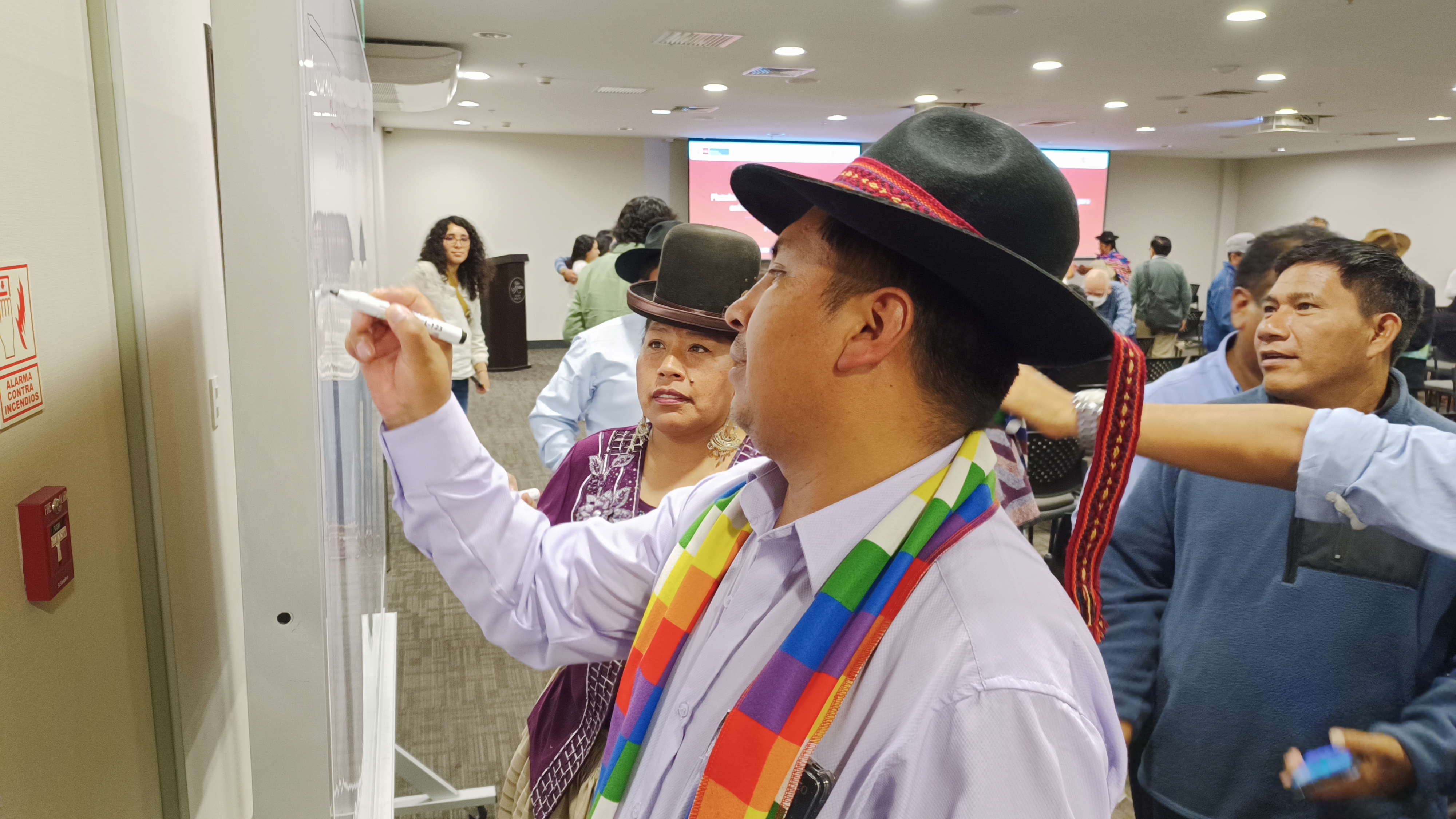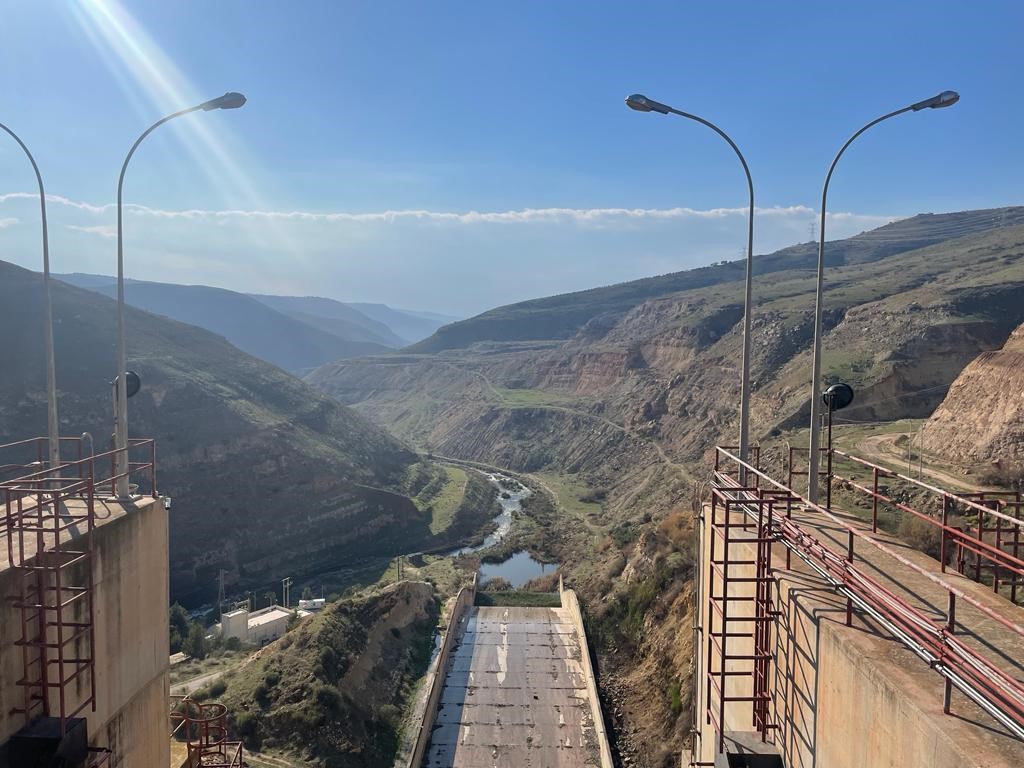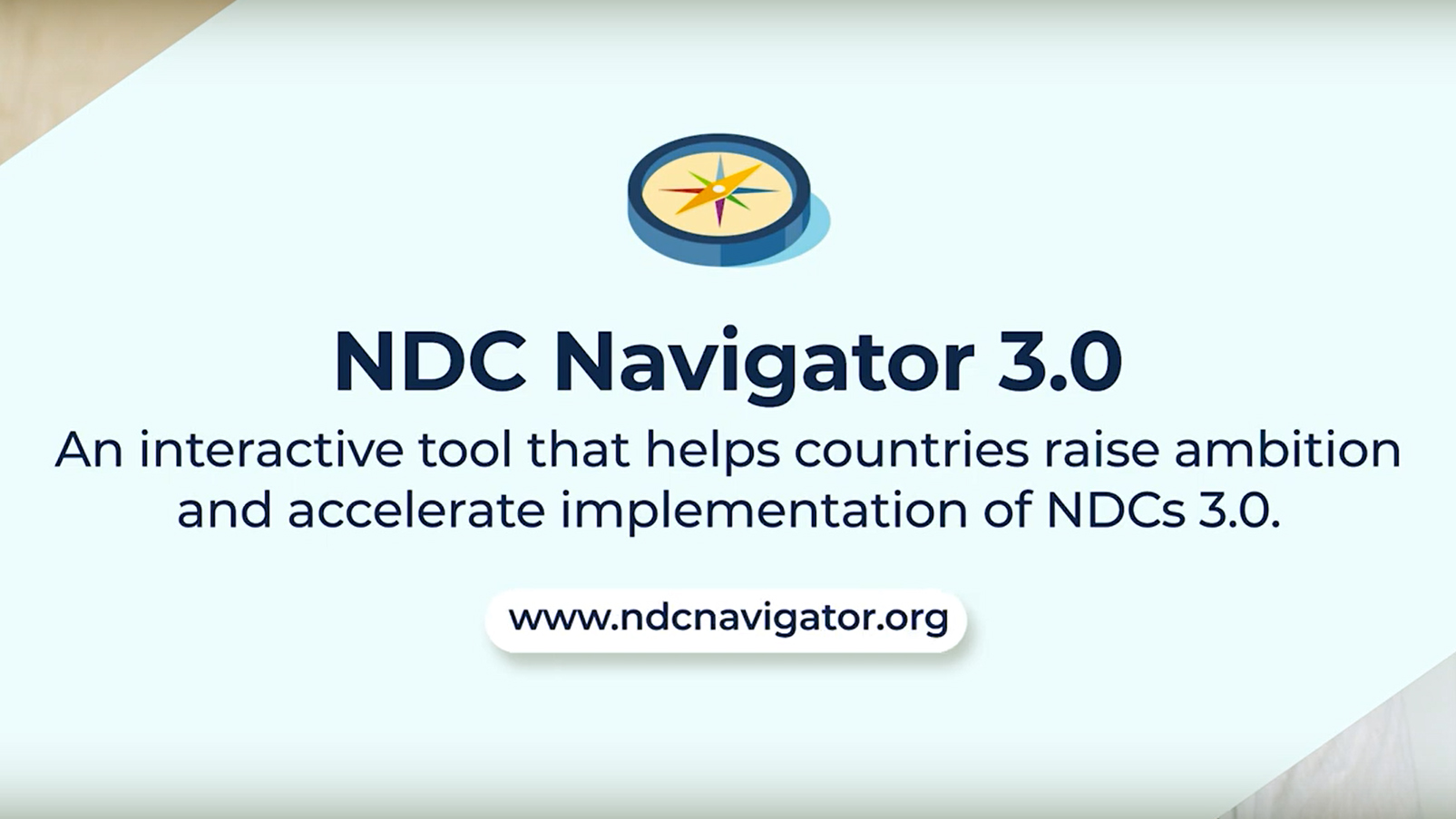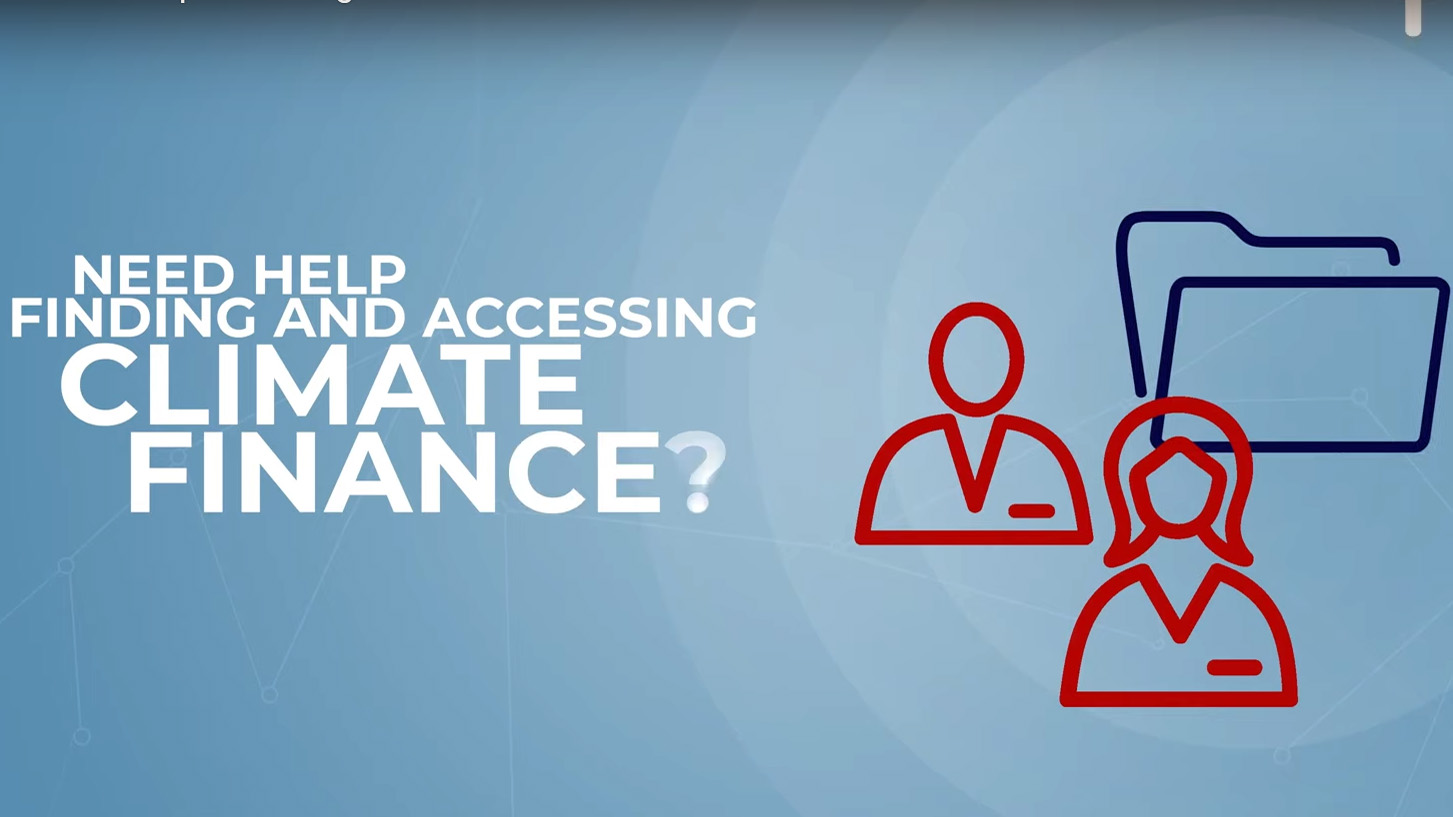A worker checks a solar installation on a roof in Santiago de Chile.
Copyright© Thomas Imo/photothek.net
NDC Partnership
A novel feature of the Paris Agreement is that it is the first time that industrialised countries, developing countries and emerging economies alike have made a commitment to contribute to this goal, by submitting Nationally Determined Contributions (NDCs). In their NDCs, countries set out their plans for cutting emissions and adapting to climate change.
The current NDCs are still not sufficiently ambitious to allow the Paris climate goals to be reached. The parties to the Agreement have therefore committed to continuously update their NDCs – which are at the core of the Agreement – and to raise ambition. They submit new, more ambitious NDCs every five years. The next revised NDCs (NDCs 3.0) are to be submitted in time for the 30th Conference of the Parties (COP30) in Belém in November 2025.
In order to assist developing and emerging economies in implementing their NDCs in line with the Sustainable Development Goals of the 2030 Agenda, the German Development Ministry (BMZ) joined together in 2016 with the Environment Ministry (BMUKN) and international partners to establish the global NDC Partnership.
The NDC Partnership at a glance
The NDC Partnership (External link) has over 240 members. Of these, about 140 are countries, approximately 60 are international organisations or development banks, and around 40 are associate members (such as research institutes, international partnerships and globally operating associations).
The aim of the NDC Partnership is to assist countries in aligning the goals of the Paris Agreement with the Sustainable Development Goals of the 2030 Agenda. Countries which join the NDC Partnership can request support for specific efforts, for instance with regard to planning, financing or implementing their NDCs. The Partnership's development partners and implementing organisations then offer them a tailor-made package of expertise, technical assistance and financing. Civil society partners such as non-governmental organisations, research institutions and the private sector are also involved in this process.
To facilitate NDC implementation, it is essential to translate abstract climate goals into concrete actions, budget decisions and investment plans – for the national, regional and municipal levels, and also for sectors, for example energy and water. The purpose of the support is not only to reduce greenhouse gas emissions and build resilience against the impacts of climate change but also to facilitate equitable sustainable development for the people.
In addition to supporting the implementation of NDCs, the NDC Partnership assists member countries in updating their Nationally Determined Contributions and Long-Term Strategies. As in previous rounds, the Partnership has set up a support programme for the current “NDCs 3.0” round of updates, which must be submitted by the end of 2025. The programme has met with a lot of demand.
Another important element of the Partnership is the facilitation of exchange of knowledge and experience. The NDC 3.0 Navigator (External link) offers countries and partners information on how to make their NDCs more ambitious and how to implement and finance their activities effectively.
German activities
Solar park Soroti in Uganda
Germany is a founding member of the NDC Partnership and is making a significant contribution to the Partnership's support for partner countries. With its seat on the Steering Committee, it provides strategic direction to the Partnership. The purpose of these efforts is to ensure that the Partnership can respond quickly and flexibly to member countries' needs in the areas of climate and development.
BMZ-funded programmes such as the Climate Promise (External link) of the United Nations Development Programme (UNDP) and the World Bank's Climate Support Facility (CSF) respond in a targeted fashion to NDC Partnership members' requests for support. The BMZ is also funding projects in partner countries as contributions to the NDC Partnership that are being implemented, for example, by the Deutsche Gesellschaft für Internationale Zusammenarbeit (GIZ).
As at: 01/10/2025
